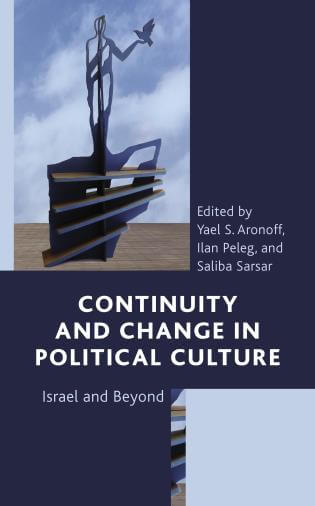Professor Saliba Sarsar’s second co-edited book this year, “Continuity and Change in Political Culture: Israel and Beyond,” will be published by Lexington Books on Nov. 30. Co-edited with Yael Aronoff and Ilan Peleg, the book was written to honor Professor Myron J. Aronoff, a leading political anthropologist and Middle East/Israel expert, and Sarsar’s mentor.
In the book, 10 scholars and practitioners of politics, political science, anthropology, Israel studies, and Middle East affairs address the theme of continuity and change in political culture with topics that include the legitimacy of the two-state solution (Israel and Palestine alongside each other in peace and security), identity and memory, denationalization, the role of trust in peace negotiations, democracy, majority-minority relations, inclusion and exclusion, Biblical and national narratives, art in public space, and avant-garde theater.
In his own chapter titled “Memory, Identity, and Peace in Palestinian-Israeli Relations,” Sarsar considers the roles of the Holocaust and the Palestinian Nakba (catastrophe) in Israeli and Palestinian collective memories. Sarsar argues, “The tragedy is that the sense of righteous victimhood causes each side to focus on its unique suffering, thereby reducing empathy for the other. What results is the purging of the other’s identity, memory, and even humanity.” Sarsar also calls for reconciliation that can only happen when each party empathizes with past injustices that the other side has endured, eventually engendering goodwill and amity.
In sum, “Continuity and Change in Political Culture: Israel & Beyond” recalls Aronoff’s innovative re-inventing of political culture over the course of his illustrious career, allowing him to uncover how power is exerted and legitimacy is earned. The contributors elaborate and extend his insistent reimagining of a re-democratized Israel at peace with a viable Palestinian state. In the epilogue, Aronoff relates his work on various aspects of political culture to each chapter in an integrative essay.
The image on the book cover is of the sculpture, “Noah’s Ark,” by Israeli artist Israel Hadany who received an honorary doctorate from Monmouth University in 2006. Sarsar says, “it is a symbol of peace, hope, and a better tomorrow, qualities our world has always sought, and needs now more than ever before.”

